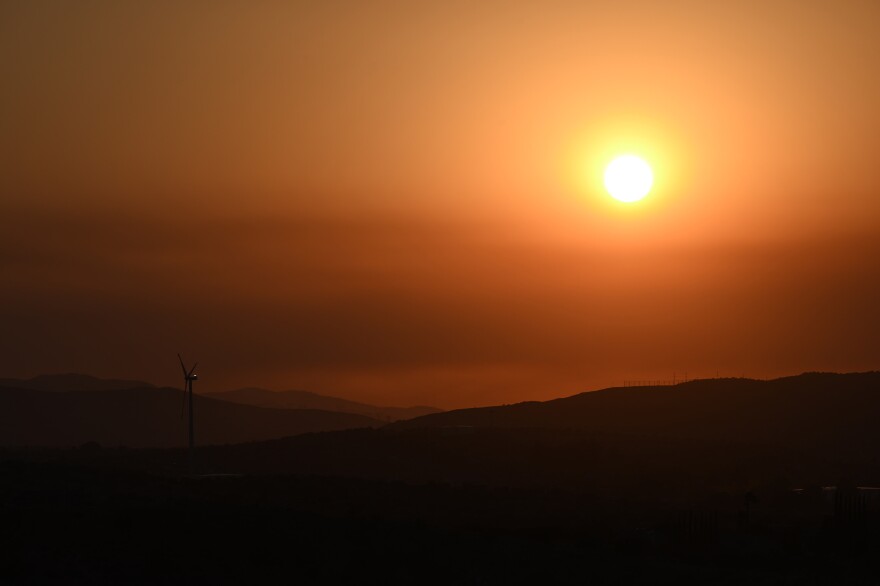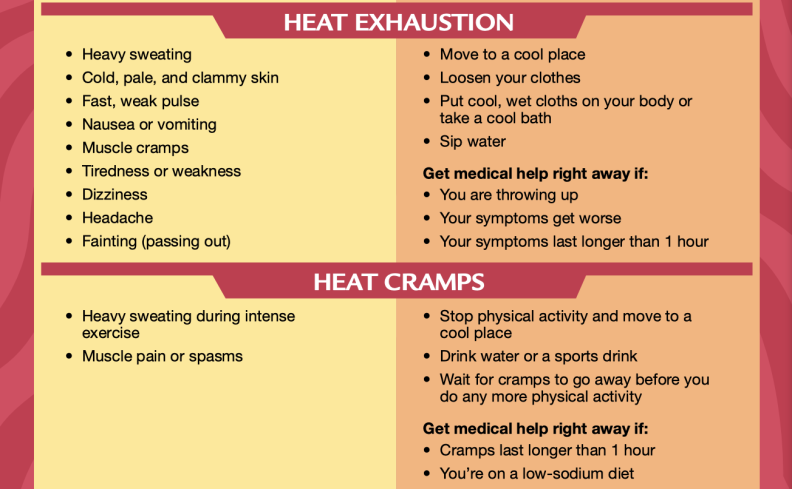It's Hot! Protect Your Health And Budget With These Cool Tips

As energy prices and temperatures rise, keeping cool in summer is an additional and costly challenge for many Angelenos.
The most vulnerable are often older people and people with low incomes who cannot afford the electricity bills to keep their homes cool, or live in apartments where landlords don’t keep air conditioning units in good repair.
Extreme heat waves are occurring more often, and lasting longer. Rising fossil fuel emissions are raising global average temperatures, making heat waves more frequent and intense. Extreme heat takes a toll on the body, and can exacerbate existing health conditions.
For some, it creates hard choices between paying climbing energy bills and putting gas in the car or food on the table. The health risks of heat need to be taken seriously. Here’s what you can do to keep you and your home cool.
-
At magnitude 7.2, buildings collapsed
-
Now spinning in front of Santa Monica apartments
-
Advocates seek end to new LAUSD location policy
Keep your body cool
If you’re under the blazing sun for too long, you can be at risk for heat-related illnesses. If you have to be outside, pay close attention to your body and stay hydrated.
There are varying degrees of heat-related illness and all are preventable. You should cool off immediately if you feel any of these symptoms: headaches, dizziness, nausea, muscle cramping, loss of appetite, excessive sweating, fast breathing and intense thirst.
How do I know if it’s heat stroke?
If your body’s temperature hits 104 Fahrenheit, heat stroke can set in, which requires urgent medical help. Danger signs include sweat stopping — that's when you feel hot but aren't sweating and may have breathing difficulties.
Heat stroke can lead to loss of consciousness and serious complications, including permanent damage to vital organs or even death. Extreme heat can affect anyone, but the most vulnerable are the elderly, pregnant people, people with conditions such as diabetes, young children, people working or exercising outdoors and people experiencing homelessness.
Learn the signs of heat exhaustion vs heat stroke. Heat stroke is a life threatening medical emergency. Hot skin without sweating and nausea/vomiting are signs. If you suspect Heat Stroke, call 911 and cool the person. #socal #heatsafety #antelopevalley #heatwave #LAheat pic.twitter.com/a2X8IC93GP
— NWS Los Angeles (@NWSLosAngeles) July 12, 2023
A compromised ability to make rational decisions is another sign of heat stroke. Someone may tell you they feel fine even if they have a heat-related illness. Other warning signs include stumbling or lack of coordination. If in doubt, it’s best to err on the side of caution. Insist that they get out of the heat and into a cool place. Spray their body with cool water or put a cold, damp cloth on the back of their neck. If they don’t cool down quickly, seek medical advice.
Some heat-related illnesses develop over time. Heat exhaustion is milder than heat stroke and can develop after several days of exposure to high temperatures and inadequate or unbalanced fluid replacement. Older adults, those with high blood pressure, and those working or exercising in a hot environment are most prone to heat exhaustion, including teenage athletes.
People with chronic conditions are vulnerable

People taking medications for depression, insomnia, or poor circulation may be especially affected by extreme heat.
If you’re on medication that could increase your risk of a heat-related illness, don’t stop taking it. Contact your health provider and come up with a plan to address heat related symptoms.
These drugs may increase the risk of heat-related illness, according to the Centers for Disease Control and Prevention:
- Psychotropics, which affect psychic function, behavior, or experience (e.g. haloperidol or chlorpromazine.)
- Medications for Parkinson’s disease — they can inhibit perspiration.
- Tranquilizers (e.g., phenothiazines, butyrophenones, and thiozanthenes.)
- Diuretic medications or "water pills" that affect fluid balance in the body.
- Cocaine and amphetamines
Drink and eat smart
Because our bodies sweat more in hot weather, it is important to replenish lost water levels. Our physical thirst is not a very reliable indicator of how dehydrated we are (urine color is better) so you should try to drink plenty before you feel very thirsty.
Women need about eight cups or two liters and men need about 10 cups or 2.5 liters of fluid every day. Water is best.
Try not to drink too much caffeine, alcohol or carbonated drinks. These are diuretics that can increase dehydration. Foods with high water content such as strawberries, cucumber, lettuce, celery and melon can help you stay hydrated and may be more tempting for children.
Try to avoid large, heavy meals full of carbohydrates and protein. They take more digesting, which in turn produce more body heat. Skipping the stovetop and oven will also help maintain a cooler temperature in your home.
There are some other environmentally friendly things you can do to keep yourself cool.
Wear natural fibers
Natural fabrics such as cotton and linen absorb sweat and allow air to circulate against your skin. These are much better than synthetics, which trap heat.
Avoid the temptation to strip off, because you may be at greater risk of sunburn, which can affect your body’s ability to cool itself. Avoid dark colored clothes. They absorb more light, converting it into heat. Wear loose garments that allow air flow.
Wear sunscreen, and reapply each hour, especially if you’re sweating. Hats will help when you’re outside, especially if they cover your neck.
Using a spray bottle or a wet washcloth for your face and neck can help take the edge off the heat, as can a lukewarm bath or shower.
And, if possible, rest during the hottest part of the day, usually 10 a.m. to 4 p.m.
How to keep your home cool on a budget
Shade starts on the outside. Awnings, movable shutters, trees and vegetation around windows can block the summer sun.
Close windows, curtains and blinds during the day. Blocking the sunlight stops heat from getting into your home.
Thermally insulated double glazed or secondary glazed windows also help. If you can’t replace the windows or you live in an apartment or rental, blackout curtains with white backing or honeycomb or solar blinds will help.
Open doors and windows when the air is cooler outside. The coolest part of the day is between 3 a.m. and 7 a.m., so if you like getting up early, open up and let the cool air in.
Cool down your bedroom
Hot nights can cause agonizing hours of poor sleep, which can severely impact your mental health, so prioritize your nighttime temperature.
Get air moving with fans, and if you are planning to install a wall-mounted air conditioning unit, place it in the bedroom. Turn it on and close the door half an hour before bed.
At night, fabric choice is key. Lightweight, natural fiber bedding and pajamas can help keep you cool, as can sleeping with fewer clothes, as can avoiding sharing a bed with partners.
You can also sleep with an insulated ice pack wrapped in a towel next to the bed to quickly cool off during the night.
Hack the heat and limit AC
An air conditioner typically uses 10 times more energy than a fan, so think twice before turning them on.
Fans are much cheaper to run. You can place a bowl of ice in front of your fan to cool the air.
When heat waves are extreme, try using a fan in combination with an air conditioner. Set the air conditioner to a higher temperature and you’ll still benefit with fans also blowing the cool air around. The combined cost will be far lower than running the air conditioner at a lower temperature.
To make it as efficient as possible, the room should be well insulated and windows should be shaded from the sun. Close doors to unused rooms to keep cool air where you need it.
Maintaining your air conditioning unit will save you money. Replacing a dirty, clogged filter with a clean one can lower your air conditioner's energy consumption by 5% to 15% according to the Energy Department.
-
Charlotte Maya's memoir, "Sushi Tuesdays: A Memoir of Love, Loss, and Family Resilience" is an intimate looks at how she continues to navigate her husband's suicide.
-
Fentanyl and other drugs fuel record deaths among people experiencing homelessness in L.A. County. From 2019 to 2021, deaths jumped 70% to more than 2,200 in a single year.
-
Prosecutors say Stephan Gevorkian's patients include people with cancer. He faces five felony counts of practicing medicine without a certification.
-
April Valentine died at Centinela Hospital. Her daughter was born by emergency C-section. She'd gone into the pregnancy with a plan, knowing Black mothers like herself were at higher risk.
-
Before navigating domestic life in the United States, AAPI immigrants often navigated difficult lives in their motherlands, dealing with everything from poverty to war.
-
There are plenty of factors in life that contribute to happiness. But could keeping in touch with your loved ones be the most important?






